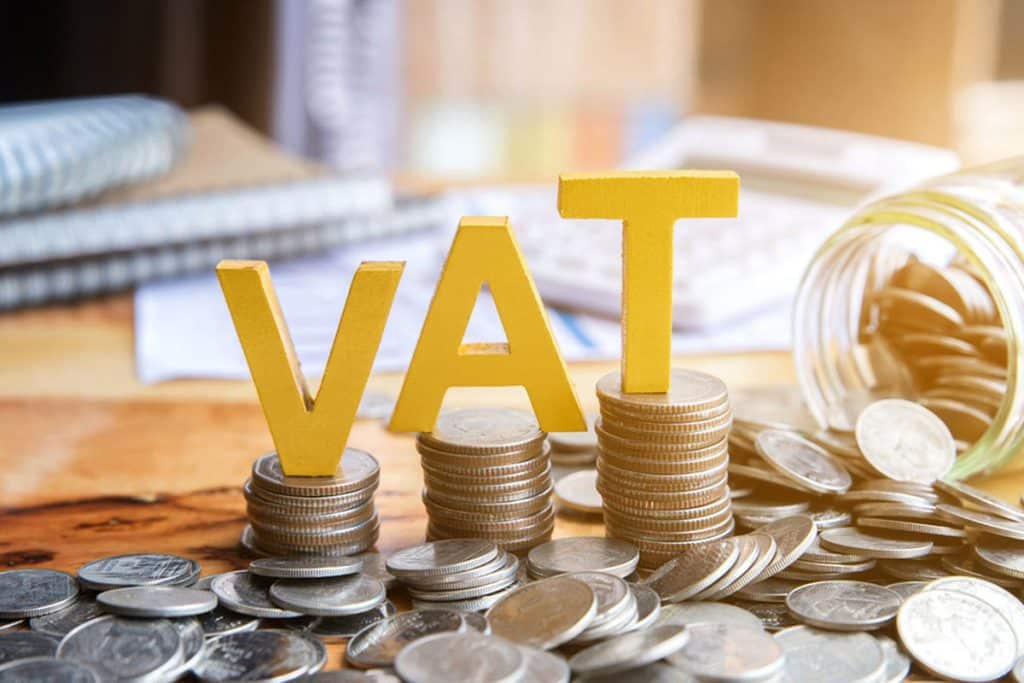+968 9596 3381
Phone Number
[email protected]
Email Address
Mon - Thu: 8:00 - 5:00
Online store always open
Phone Number
Email Address
Online store always open
WhatsApp Us Today
Drop Us an Email Today
Google Map Location
Saturday to Thursday

As Oman continues to strengthen its taxation system, Value-Added Tax (VAT) remains a crucial part of the country’s revenue framework. Introduced in 2021, VAT has now fully integrated into Oman’s business environment.
For 2025, businesses operating in Oman must comply with updated registration rules, VAT rates, exemptions, and filing procedures. This guide provides a comprehensive overview of VAT in Oman, helping businesses stay compliant while maximizing tax efficiency.
✔ Standard VAT Rate: Remains at 5%, but discussions continue on future rate adjustments.
✔ Zero-Rated VAT: Certain goods, exports, and essential services remain VAT-free.
✔ VAT-Exempt Categories: Healthcare, education, and financial services continue to have exemptions.
✔ Registration Threshold: Businesses must register if annual turnover exceeds OMR 38,500.
✔ VAT Filing Periods: Businesses must file quarterly VAT returns via the Oman Tax Authority (OTA) portal.
All businesses meeting the following thresholds must register for VAT in Oman:
✔ Mandatory Registration: If annual taxable turnover exceeds OMR 38,500.
✔ Voluntary Registration: If annual turnover is between OMR 19,250 – OMR 38,500.
Sign up on the Oman Tax Authority (OTA) portal.
Submit VAT application, including business license and financial records.
Receive VAT Certificate & Identification Number (VATIN).
Start charging VAT on taxable transactions.
Businesses that have not yet registered and meet the taxable turnover threshold must complete VAT registration immediately to avoid penalties.
The standard VAT rate remains at 5%, with some exceptions:
| Type of Supply | VAT Rate |
|---|---|
| General goods & services | 5% |
| Basic food items | 0% (Zero-rated) |
| Healthcare & education | Exempt |
| International transportation | 0% |
| Financial services (certain types) | Exempt |
| Real estate (sale & lease of residential properties) | Exempt |
✔ Zero-Rated (0%): Businesses still file VAT returns but can reclaim input VAT.
✔ Exempt: No VAT is charged, but businesses cannot reclaim input VAT.
While the 5% VAT rate remains unchanged, the government has hinted at potential increases in coming years to align with other GCC nations.
Calculate total VAT collected from taxable sales.
Deduct input VAT paid on business expenses.
Submit VAT return via the OTA portal.
Pay any due VAT within 30 days to avoid penalties.
VAT returns are filed quarterly.
Late filings result in financial penalties and interest on unpaid VAT.
✔ Healthcare & education services remain VAT-exempt.
✔ Exports & international trade continue to be zero-rated (0%).
✔ Financial services & insurance have limited exemptions.
✔ Real estate transactions have mixed VAT treatment: commercial properties are taxable, while residential properties are exempt.
Failure to comply with VAT regulations can result in significant penalties:
✔ Late VAT registration: Up to OMR 10,000 fine.
✔ Failure to issue VAT invoices: Up to OMR 5,000 fine.
✔ Incorrect VAT filing: Penalty of up to 25% of unpaid tax.
✔ Late VAT payment: Interest accrues daily on overdue VAT amounts.
Businesses can reclaim VAT on certain expenses, including:
✔ Business purchases & inventory.
✔ Office rent & utilities.
✔ Consulting & professional services.
VAT refunds must be claimed through quarterly VAT filings.
✔ Foreign businesses selling digital services in Oman must register for VAT.
✔ Reverse charge mechanism applies to some cross-border transactions.
✔ E-commerce sellers must collect & remit VAT on sales to Omani consumers.
✔ Simplified VAT compliance rules for SMEs.
✔ Cash accounting scheme may apply to eligible small businesses.
✔ Voluntary VAT registration helps smaller businesses establish credibility.
✔ VAT affects pricing strategies, as businesses must account for tax.
✔ Impacts supply chain costs, particularly for importers.
✔ Requires bookkeeping updates to track input and output VAT.
✔ Potential VAT rate increase beyond 5%.
✔ Additional zero-rated & exempt goods/services.
✔ Stricter compliance for digital & international transactions.
Do not hesitate to contact us. We’re a team of experts ready to talk to you.




Compliance is a major factor in VAT regulations, and accurate record-keeping is mandatory for all registered businesses. The Oman Tax Authority (OTA) requires businesses to maintain records for at least 10 years to ensure compliance and facilitate tax audits.
VAT invoices for all taxable transactions (sales and purchases).
Credit and debit notes related to adjustments in tax amounts.
Purchase records detailing input VAT paid.
Sales ledgers showing output VAT collected.
Import/export documentation for goods moving across borders.
Bank statements and payment records to match VAT filings.
Failure to maintain proper VAT records can result in hefty penalties and legal consequences, including fines and audits by the tax authority.
VAT applies differently to imported and exported goods and services, impacting global trade activities.
5% VAT applies to most imports unless exempt or zero-rated.
Importers must declare VAT at customs and pay it upfront.
Businesses can reclaim VAT paid on imports as input tax credit in their VAT returns.
Customs clearance is delayed for businesses with unpaid VAT dues.
Exports of goods and services are zero-rated (0%), allowing businesses to avoid VAT on sales outside Oman.
Exporters must maintain accurate documentation to prove goods were shipped internationally (such as bills of lading and customs declarations).
Exported digital services are also zero-rated, benefiting technology and online businesses.
VAT rules on cross-border transactions are crucial for importers and exporters, ensuring compliance with international trade laws.
The Reverse Charge Mechanism (RCM) is designed to shift the VAT liability from the foreign supplier to the Omani buyer in specific transactions. This applies mainly to cross-border business-to-business (B2B) services and imports.
✔ Foreign suppliers providing digital services to businesses in Oman.
✔ Professional services from non-resident consultants, lawyers, or accountants.
✔ Software licensing fees and cloud-based IT services purchased from international companies.
Under RCM, the Omani business must self-account for VAT and declare it in their VAT return, avoiding unnecessary tax cascading.
VAT treatment varies significantly in the real estate sector, depending on the type of property and transaction nature.
Exempt from VAT (No tax is applied on sales or leases of residential properties).
Renovations and maintenance may be subject to 5% VAT if provided by registered suppliers.
5% VAT applies to the sale, lease, and rental of commercial properties.
Businesses renting commercial properties must pay and claim input VAT on rental expenses.
Property management services and real estate brokerage are subject to VAT at 5%.
Real estate businesses and investors should properly classify properties to ensure correct VAT treatment and compliance.
Financial services are partially exempt from VAT, but not all transactions qualify for exemption.
✔ Interest on bank loans, credit cards, and deposits.
✔ Life insurance and reinsurance policies.
✔ Trading of stocks, bonds, and securities.
✔ Processing fees for banking transactions (e.g., loan application fees).
✔ Advisory, consulting, and wealth management services.
✔ Non-life insurance policies, such as car or health insurance.
Banks, insurers, and financial institutions must determine which services are taxable or exempt for accurate VAT filing.
Oman’s tourism sector is one of the fastest-growing industries, and VAT regulations impact various hospitality businesses.
✔ Hotels and accommodations charge 5% VAT on room bookings and services.
✔ Restaurants and catering services also attract 5% VAT.
✔ Tourism packages and guided tours are zero-rated if provided to international visitors.
✔ Airline tickets for international flights are zero-rated, while domestic flights are subject to 5% VAT.
Oman’s VAT structure supports global tourism by reducing tax burdens on international visitors, making the country more attractive to travelers.
Mergers, acquisitions, and business restructuring involve complex VAT considerations, affecting taxable transactions and VAT recovery.
✔ Sale of an entire business as a going concern may be exempt from VAT.
✔ Asset sales within M&A deals are generally subject to 5% VAT.
✔ Buyers may need to register for VAT immediately if acquiring a taxable business.
✔ VAT-registered entities can reclaim VAT on advisory fees and due diligence costs.
The Oman Tax Authority (OTA) actively audits VAT-registered businesses to ensure proper tax compliance.
✔ Frequent VAT filing errors or inconsistent reporting.
✔ Late VAT payments or non-compliance with registration deadlines.
✔ Unusual tax refund claims, particularly large input VAT reclaims.
✔ High-risk industries, such as e-commerce and finance.
✔ Maintain organized tax records for at least 10 years.
✔ Ensure invoices and transactions are correctly classified.
✔ Reconcile VAT returns with financial statements.
Firms under VAT audit scrutiny must cooperate with tax authorities to avoid additional fines or interest charges.
Digital services and online businesses are a growing part of Oman’s economy, and VAT rules now apply to domestic and foreign digital businesses.
✔ E-books, streaming, and SaaS software are subject to 5% VAT.
✔ Non-resident digital service providers must register for VAT if serving Omani customers.
✔ Marketplaces and e-commerce platforms may be required to collect VAT on behalf of sellers.
With increasing digital commerce and remote work, VAT rules on technology-driven businesses are becoming stricter.
Oman’s VAT system continues to evolve, and new reforms are expected beyond 2025.
✔ Increase in the VAT rate (some Gulf countries charge up to 15% VAT).
✔ Expansion of taxable goods & services, reducing exemptions.
✔ Stronger digital tax enforcement for online and international businesses.
✔ More VAT incentives for green energy and sustainable investments.
Businesses must stay informed about upcoming VAT policy changes to adjust pricing, compliance, and tax strategies accordingly.





Contact Setup in Oman today for professional VAT registration and advisory services.
VAT compliance in Oman requires businesses to maintain accurate records and follow strict documentation rules to ensure smooth tax filing and avoid penalties. The Oman Tax Authority (OTA) has enforced regulations requiring businesses to store VAT-related records for a minimum of 10 years.
✔ VAT invoices: Businesses must issue detailed tax invoices for all transactions, including seller details, VAT registration number, and VAT amount.
✔ Credit and debit notes: Any price adjustments, discounts, or returns must be recorded with proper documentation.
✔ Purchase records: All business expenses related to VAT (such as raw materials, services, or office supplies) must be documented.
✔ Import/export declarations: Companies involved in international trade must provide customs documentation proving VAT payments or exemptions.
✔ Financial statements: VAT filings must align with corporate financial reports to avoid discrepancies during audits.
Fines up to OMR 5,000 for missing documentation
Additional tax audits and compliance checks
Loss of VAT refund claims due to inadequate proof of transactions
Import and export transactions are heavily regulated under Oman’s VAT system, impacting businesses involved in cross-border trade.
Most imported goods are taxed at 5%, except for exempted or zero-rated items.
Importers must declare VAT at customs and pay it before clearance.
Businesses can reclaim VAT paid on imports as input tax credit through their quarterly filings.
Delays in VAT payments may lead to customs clearance issues.
Exports are zero-rated (0%), meaning VAT is not charged, but businesses must maintain export documentation to prove tax exemption.
Digital services provided to non-residents are also zero-rated.
Companies failing to provide proof of export may face VAT reclassification.
Proper handling of import/export VAT compliance ensures businesses avoid penalties and maximize tax savings.
Oman applies the Reverse Charge Mechanism (RCM) to certain cross-border transactions, shifting VAT responsibility from the foreign supplier to the Omani business purchasing the service.
✔ Foreign suppliers of digital services (e.g., SaaS, software licensing)
✔ Professional services from non-resident consultants, lawyers, or auditors
✔ Marketing and advertising services purchased from international companies
✔ Import of goods when VAT is not charged at the point of sale
Under RCM, Omani businesses must self-account for VAT, declare it in their tax filings, and pay the VAT directly to the tax authority instead of the foreign supplier.
VAT treatment in real estate transactions depends on whether the property is residential or commercial.
✔ VAT-exempt – No VAT is charged on the sale or lease of residential units.
✔ Utilities and maintenance services may attract 5% VAT if provided by VAT-registered companies.
✔ 5% VAT applies to the sale, lease, and rental of office spaces, warehouses, and retail units.
✔ Property management services and real estate brokerage fees are taxable at 5%.
Developers must charge VAT on commercial projects.
Investors purchasing commercial units can claim VAT refunds under certain conditions.
The financial sector in Oman follows a mix of taxable and exempt transactions, making VAT compliance complex.
✔ Bank loans and interest payments
✔ Life insurance and investment returns
✔ Trading of stocks, bonds, and securities
✔ Bank fees (e.g., transaction fees, loan processing fees)
✔ Non-life insurance (e.g., vehicle, travel, and business insurance)
✔ Financial advisory and consulting services
Financial institutions must carefully classify transactions to ensure accurate VAT reporting and avoid penalties.
The tourism sector in Oman is a significant revenue generator, and VAT plays a key role in pricing and service taxation.
✔ Hotels & Resorts: 5% VAT applies to accommodation, spa services, and entertainment.
✔ Restaurants & Cafés: All food and beverage services are subject to 5% VAT.
✔ Tourism Packages: Domestic tourism services attract 5% VAT, while international bookings may qualify for zero-rating.
✔ Air Travel: International flights are zero-rated, while domestic flights are taxed at 5%.
Tourism businesses must adjust pricing strategies to remain competitive while complying with VAT laws.
Mergers and acquisitions (M&A) transactions involve complex VAT implications, affecting tax obligations and business valuations.
✔ Full business transfers may be VAT-exempt under certain conditions.
✔ Asset-based acquisitions may require VAT on individual assets.
✔ Buyers must conduct VAT due diligence to ensure past compliance by the acquired company.
M&A deals require tax planning to minimize VAT exposure and ensure proper filing.
The Oman Tax Authority (OTA) actively audits VAT-registered businesses to detect underreporting, misclassification, or fraud.
✔ Frequent discrepancies in VAT filings
✔ High VAT refund claims
✔ Inconsistent revenue declarations
✔ Delayed VAT payments
✔ Keep accurate VAT records for at least 10 years.
✔ Ensure all invoices and credit notes match VAT returns.
✔ Regularly reconcile VAT filings with financial reports.
Fines of up to OMR 10,000
VAT re-assessments leading to additional tax liabilities
The digital economy is growing, and VAT laws now apply to online businesses.
✔ E-books, software, and streaming services are subject to 5% VAT.
✔ Foreign e-commerce businesses selling in Oman must register for VAT.
✔ VAT applies to in-app purchases and gaming services.
E-commerce platforms and SaaS providers must ensure compliance with local tax laws to avoid legal issues.
The Omani government is exploring further changes to the VAT system.
✔ Potential VAT rate increases (aligning with GCC nations like Saudi Arabia at 15%).
✔ Expanding VAT to more sectors, including public services.
✔ Stricter enforcement of digital tax compliance.
Businesses must stay informed and adapt pricing, compliance, and tax strategies as new policies emerge.
Value-Added Tax (VAT) is a consumption tax applied to goods and services at each stage of the supply chain. Oman introduced VAT in 2021 as part of its economic diversification strategy to reduce reliance on oil revenues.
The standard VAT rate in Oman is 5%, applying to most goods and services unless they fall under zero-rated or exempt categories.
Any business with a taxable turnover exceeding OMR 38,500 must register for VAT. Businesses with turnover between OMR 19,250 – OMR 38,500 can register voluntarily.
Businesses must:
Register via the Oman Tax Authority (OTA) portal.
Submit business details, financial records, and trade license.
Obtain a VAT Certificate & VAT Identification Number (VATIN).
Charge and collect VAT on taxable sales.
Yes, businesses with annual turnover above OMR 19,250 can register voluntarily to claim input tax credit on business expenses.
VAT returns must be filed quarterly, with payments due within 30 days after the tax period ends.
Failure to register for VAT on time can result in fines of up to OMR 10,000.
Businesses must keep VAT records for at least 10 years to comply with tax regulations.
No. While the standard VAT rate is 5%, certain goods and services are either zero-rated (0%) or VAT-exempt.
Zero-rated (0%): No VAT is charged, but businesses can reclaim input VAT.
Exempt: No VAT is charged, but businesses cannot reclaim input VAT.
✔ Exports of goods and services
✔ International transportation
✔ Basic food items
✔ Healthcare and education services
✔ Certain financial services (e.g., interest on loans, life insurance)
✔ Sale and lease of residential properties
✔ Residential properties are exempt from VAT.
✔ Commercial properties are subject to 5% VAT.
Yes, VAT applies to most imports at 5%, unless they qualify for exemptions or zero-rating.
No, exports are zero-rated (0%), meaning VAT is not charged, but businesses can reclaim input VAT on related expenses.
Calculate total VAT collected from taxable sales.
Deduct input VAT (tax paid on business expenses).
File VAT return via the Oman Tax Authority (OTA) portal.
Pay any VAT due within 30 days.
Late VAT filings result in financial penalties and interest charges on unpaid VAT amounts.
Yes, businesses can reclaim VAT on eligible expenses, including:
✔ Raw materials and inventory
✔ Office rent and utilities
✔ Professional services and consulting fees
VAT refunds are claimed through quarterly VAT filings. If a business has excess input VAT, it can request a refund or carry it forward to future tax periods.
Yes, VAT-registered businesses must issue VAT-compliant invoices that include:
✔ Business name and VATIN
✔ Description of goods/services
✔ VAT rate and total VAT amount
✔ Foreign businesses selling digital services to Omani consumers must register for VAT.
✔ The reverse charge mechanism (RCM) applies to foreign B2B services, shifting VAT responsibility to the Omani buyer.
✔ Online sales within Oman are subject to 5% VAT.
✔ Foreign e-commerce platforms selling to Omani customers must register for VAT.
The RCM shifts VAT responsibility from the foreign supplier to the Omani buyer, commonly used in:
✔ Digital services provided by non-residents
✔ International consulting & professional services
✔ Free zone businesses may enjoy VAT exemptions on specific transactions.
✔ Certain goods and services supplied to the mainland may still be taxed.
✔ Interest on loans, life insurance, and securities trading are VAT-exempt.
✔ Banking fees and advisory services are taxable at 5%.
Yes, the OTA conducts audits to ensure businesses are filing accurate VAT returns and maintaining proper records.
✔ Frequent VAT filing errors or inconsistencies
✔ Large VAT refund claims
✔ Non-compliance with record-keeping requirements
✔ Failure to file VAT returns: OMR 5,000 fine
✔ Incorrect VAT declarations: Fine up to 25% of unpaid VAT
There are ongoing discussions about potential VAT rate increases beyond 5% in the coming years to align with GCC countries like Saudi Arabia and UAE.
✔ The government may review and adjust VAT exemptions to expand taxable sectors.
✔ Possible VAT incentives for sustainable energy and eco-friendly businesses.
✔ Oman is expected to introduce stricter VAT rules for e-commerce and online businesses.
✔ International digital service providers may face increased compliance requirements.
✔ Monitor tax law updates issued by the Oman Tax Authority (OTA).
✔ Upgrade accounting systems to handle potential VAT rate adjustments.
✔ Train employees on new tax regulations to ensure smooth compliance.
Do not hesitate to contact us. We’re a team of experts ready to talk to you.
At Setup in Oman, we’re passionate about helping your business dreams take root in the fertile ground of the Omani market. We don’t just handle paperwork – we become your trusted partner on the path to success.
Fill out our quick and easy contact form below. Briefly tell us about your vision and goals, and we’ll be in touch shortly to discuss a personalized plan for your success.
Al-Khuwair, Muscat, Sultanate of Oman